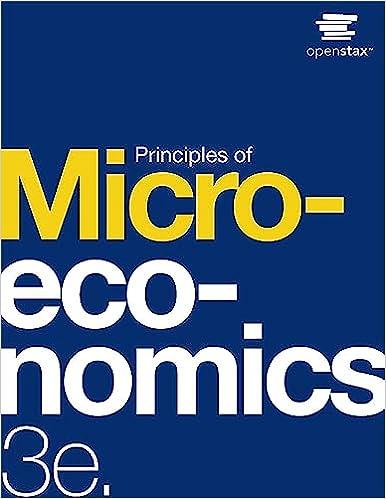Question
Two firms sell their product in a perfectly competitive market. The first firm has a cost curve represented by C(Q)= 0.5Q^2 and the second firm
Two firms sell their product in a perfectly competitive market. The first firm has a cost
curve represented by C(Q)= 0.5Q^2 and the second firm has a cost curve represented by C(Q)=0.125Q^2 . The demand is given by the linear demand curve Q = 60 - P.
If the government imposes a quota of 40 units, the market price for a unit of Q is 20 and the producer surplus is 640. However, if each firm receives 20 permits to produce, the sum of individual producer surplus is less than 640.
Suppose that the government allows the firms to buy and sell permits. The only two firms in the permit market are firms 1 and 2 and so the total quantity of permits is fixed at 40. Finally assume that the price at which a firm can sell a permit is equal to the price at which it can buy one.
- If the firms are free to trade as many permits as they would wish on the permit market (assume that the firms are price takers on the permit market) then how many permits will be traded? What will be the price of a permit?
Step by Step Solution
There are 3 Steps involved in it
Step: 1

Get Instant Access to Expert-Tailored Solutions
See step-by-step solutions with expert insights and AI powered tools for academic success
Step: 2

Step: 3

Ace Your Homework with AI
Get the answers you need in no time with our AI-driven, step-by-step assistance
Get Started


